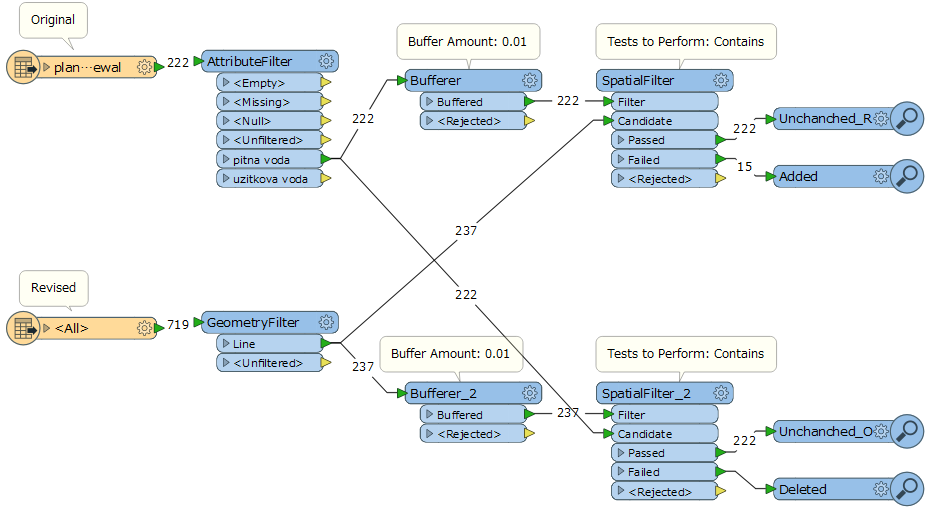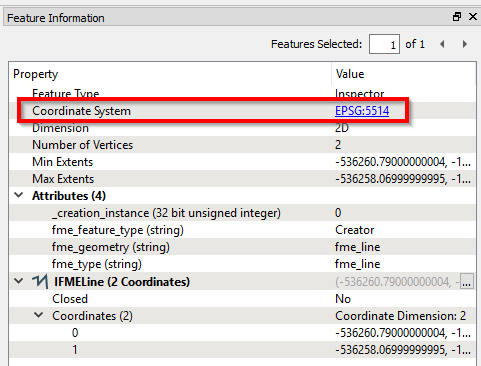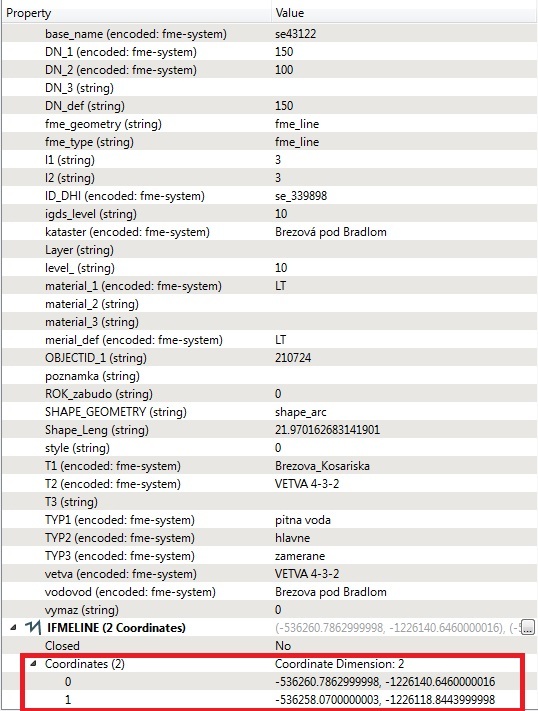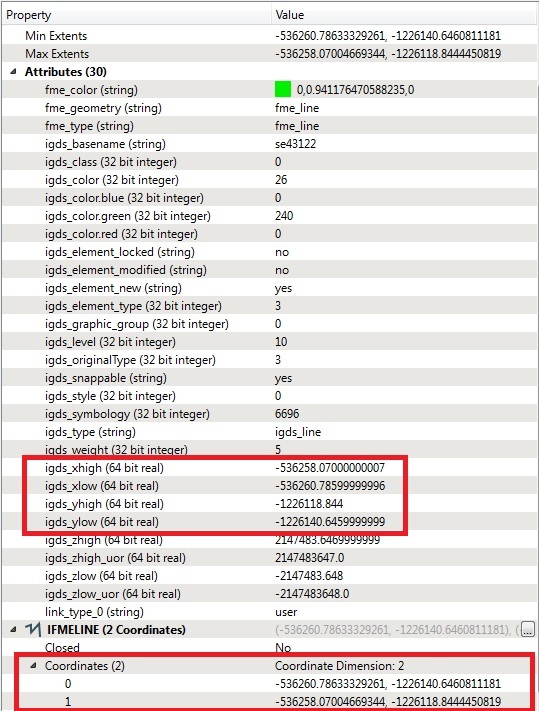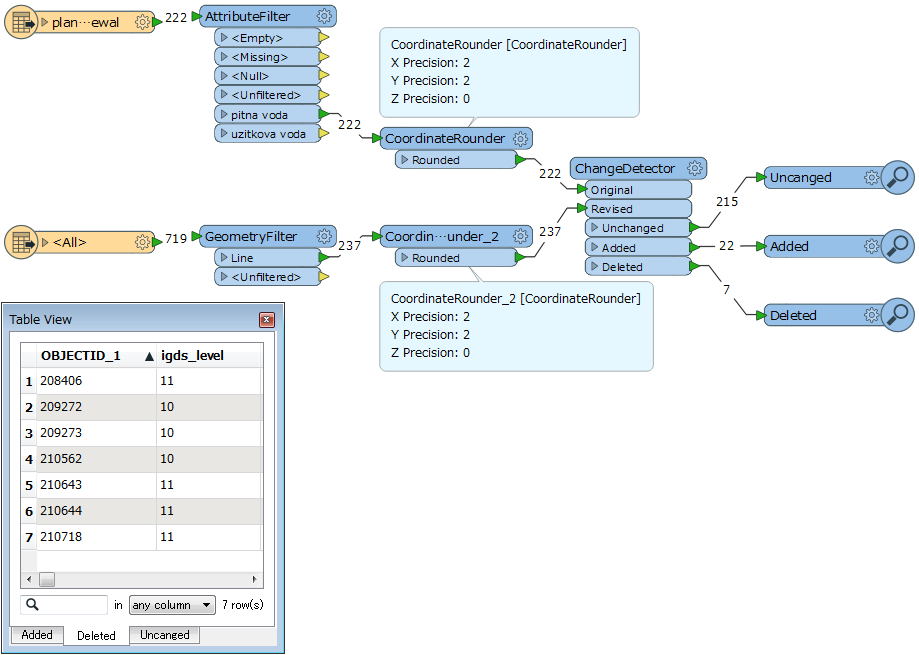Hello,
unfortunately, I have problem with result from coordinate rounder and following process in changedetector.
Example of my situation is below:
There are 2 sources of data. One is actual to 2016 (technical map) and second to 2012 (plan of renewal). Plan of renewal was made from technical map in 2012. Now I want to compare these two sources in actual form with coordinates accuracy 0,01 m. I chose this way of processing - first I used coordinate rounder with X,Y precision 2 for both sources. I sent features with rounded coordinates to change detector. Values of coordinates are following:
First source
Coordinate 0: -536260.78633329261, -1226140.6460811181 Coordinate 1: -536258.07004669344, -1226118.8444450819
Second source:
Coordinate 0: -536260.7862999998, -1226140.6460000016 Coordinate 1: -536258.0700000003, -1226118.8443999998
Result is disappointing... In spite of fact that I rounded coordinates to precision 2, change detector said, that coordinates are different, but they arent in real...
Can anybody help me please?
Thank You very much!!
Lubo




